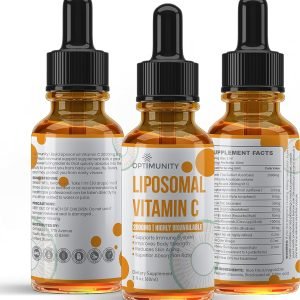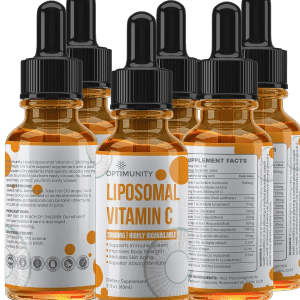In the quest for optimal health and wellness, the discussion around “Liposomal Vitamin C Powder vs Liquid Form” emerges as a crucial battleground. This ultimate showdown goes beyond mere preference; it’s an in-depth exploration of which format reigns supreme in delivering the potent benefits of Vitamin C. With liposomal technology transforming the landscape of nutrient absorption, this comparison is not just relevant, but essential for anyone looking to harness the full power of this vital nutrient.
Liposomal encapsulation, known for its ability to increase bioavailability, is a game-changer in both powder and liquid forms of Vitamin C. However, the question at the heart of this debate is clear: which form – powder or liquid – offers the most effective way to integrate this essential antioxidant into your daily health regimen? As we navigate through the pros and cons, scientific insights, and user experiences, get ready to discover the ultimate winner in the Liposomal Vitamin C Powder vs Liquid Form showdown.

In this article, we delve into a comparative analysis of Powdered Liposomal Vitamin C and its Liquid counterpart. We’ll explore the science behind liposomal delivery, weigh the pros and cons of each form, and ultimately guide you to make an informed decision about which is best suited for your health needs. Join us in uncovering the facts, busting myths, and finding out the best way to incorporate this vital nutrient into your daily regimen.
Better Absorption

One of the tricky things about getting enough vitamin C through food is that most of it is not absorbed in the gut. This is because vitamin C is not fat-soluble, so it doesn’t make its way into fatty tissue.
To solve this, most people should be taking powdered liposomal vitamin C to ensure the best absorption rate.
Because liposomal vitamin c capsules deliver a dose of vitamin c surrounded by phospholipids, vitamin c is efficiently delivered into the lymphatic system. This means the user receives a more effective vitamin C dose than traditional vitamin c or its liquid form. [1]
Easier on the Stomach

Vitamin C is water-soluble, which means most of it is normally excreted by the body. In order to get the proper dosage and have any positive effect, many people take a large dose of vitamin C which can lead to diarrhea, nausea, or vomiting.
This is not the case with liposomal vitamin c because it goes directly to the bloodstream encapsulated in liposomes, and not through the digestive system.
In addition to being easier on the stomach, this delivery of vitamin C offers far superior bioavailability and less waste. [2]
Benefits of Capsules

Capsules of powdered liposomal vitamin c are easy to take anywhere with you, including on a plane, and are easy to store.
Liquid liposomal vitamin c needs to be stored in the refrigerator, has restrictions to taking on a plane, and has a very short shelf life.
High Potency

Buying a liquid vitamin c and taking large doses, only for it to be expelled from the body (typically when urinating) is neither the best choice for someone’s health nor wallet.
Choosing a liposomal vitamin C is better for your health because it delivers the vitamin C directly to your cells which gives you the highest level of potency and thus, health benefits. To read more about all of the many health benefits of liposomal vitamin c check out our blog post here [insert link]
No Soy

A quality liposomal vitamin C, such as the Optimunity brand, does not contain any soy.
Soy is a common allergen, and worse, most soybeans are genetically modified which can lead to negative effects on health [3].
Sunflower is a superior source for phospholipids because it is non-allergenic and has a much healthier extraction method. The better choice is a supplement with sunflower as its ingredient source.
Frequently asked questions on Liposomal Vitamin C Powder vs Liquid Form
Q: What are liposomes?
A: Microscopic fat molecules designed to carry vitamins directly into the body’s cells.
Q: How do I choose the best liposomal vitamin c?
A: We have a blog post on how to choose the best. You must read it.
Citations
[1] Stephen Hickey, Hilary Roberts, Nicholas Miller. Journal of Nutritional & Environmental Medicine, Month 2008, Pharmacokinetics of oral vitamin C. https://www.livonlabs.com/site2018/wp-content/uploads/2019/01/Dr_Hickey_Clinical_Study_Published.pdf
[2] Gopi S, Balakrishnan P. Evaluation and clinical comparison studies on liposomal and non-liposomal ascorbic acid (vitamin C) and their enhanced bioavailability. J Liposome Res. 2021 Dec;31(4):356-364. doi: 10.1080/08982104.2020.1820521. Epub 2020 Oct 6. PMID: 32901526.
[3] Magaña-Gómez JA, Cervantes GL, Yepiz-Plascencia G, de la Barca AM. Pancreatic response of rats fed genetically modified soybean. J Appl Toxicol. 2008 Mar;28(2):217-26. doi: 10.1002/jat.1319. PMID: 18041736.












